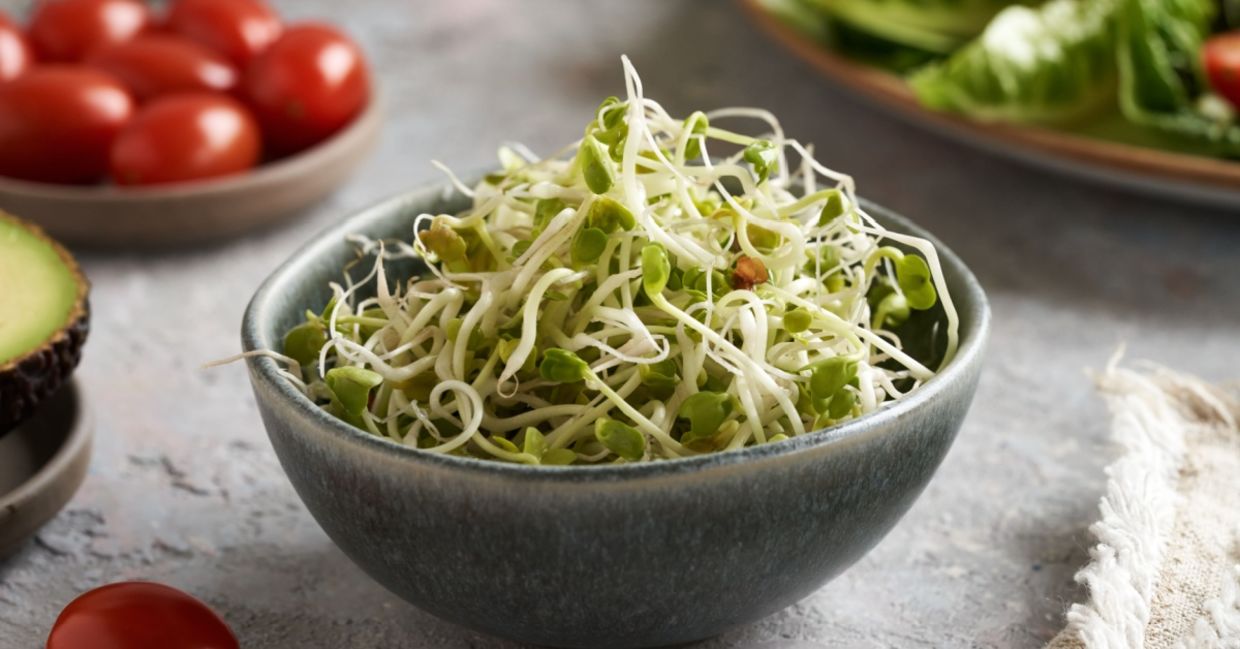
(Madeleine Steinbach / Shutterstock.com)
In recent years, sprouting has surged in popularity, with health enthusiasts and nutritionists alike touting its numerous benefits. The practice of sprouting seeds, grains, and legumes offers a simple and cost-effective way to enhance one’s diet with nutrient-rich foods. Sprouting is the process of germinating seeds to unlock their full nutritional potential, turning a basic seed into a living plant that’s easier to digest and richer in essential vitamins and minerals — making sprouts incredibly popular among those seeking healthier eating habits.
View this post on Instagram
Why sprouting is trending
The sprouting trend has gained traction due to the increasing interest in plant-based diets, sustainable living, and DIY food practices. Sprouts are easy to grow at home, requiring little space, making them ideal for urban dwellers or those looking for a self-sufficient, eco-friendly food source. As noted in a blog post on the Todd’s Seeds platform, sprout jars have become particularly popular, allowing individuals to grow their own nutrient-packed sprouts in a simple, manageable way. The low cost, high yield, and ability to control the growing process are additional factors driving this trend. Sprouting appeals to those looking to diversify their meals with minimally processed, nutrient-dense foods.
Health and wellness platforms such as Well + Good highlight how people are embracing sprouts for their versatility — whether tossed into salads, blended into smoothies, or added to sandwiches, they bring a satisfying crunch and nutritional boost to meals.
Sprouting at home is a simple process that requires minimal equipment. To start, all you need are seeds, grains, or legumes, a sprouting jar or a mason jar with a mesh lid, and water. Begin by soaking the seeds in water for 6-12 hours, depending on the variety. After soaking, drain the water, rinse the seeds, and then place the jar in a well-ventilated area away from direct sunlight. Rinse and drain the seeds twice a day, and within a few days, you’ll notice tiny sprouts starting to form. Once the sprouts have reached the desired length, they’re ready to eat. Store them in the fridge and enjoy fresh sprouts for up to a week.
Nutritional powerhouse
One of the key reasons sprouting has become so popular is its impressive nutritional profile. According to WebMD, sprouts are rich in essential vitamins and minerals such as Vitamin C, K, and folate, as well as antioxidants that help protect the body from oxidative stress . Additionally, sprouting enhances the bioavailability of these nutrients. As seeds or grains begin to sprout, their nutrient levels increase, and they become easier for the body to digest and absorb.
Sprouting also reduces anti-nutrients such as phytic acid and lectins, which can inhibit nutrient absorption. By breaking down these compounds, sprouts allow for better digestion and maximize the benefits of the vitamins and minerals they contain.
Enhanced digestion and gut health
Sprouts are celebrated for their positive effects on digestion. The process of sprouting pre-digests complex compounds in the seed, making it easier for the human digestive system to process. As DNA India explains, incorporating sprouts into your morning routine can improve digestive health by enhancing the gut microbiome and aiding in the breakdown of nutrients. For those with sensitive stomachs or issues digesting raw vegetables, sprouts provide a gentler option.
Immune system support
According to Well and Good, the abundance of antioxidants in sprouts helps strengthen the immune system by reducing inflammation and fighting off harmful free radicals. In particular, broccoli sprouts contain sulforaphane, a compound known to have powerful anti-inflammatory and anti-cancer properties.
Sprouting is an environmentally sustainable practice. As Todd’s Seeds points out, growing your own sprouts at home reduces the need for packaging and transportation, making it a greener option for conscious consumers. It also requires minimal resources such as water and sunlight, making it an accessible and affordable solution for anyone seeking to improve their diet.
Sprouting is not just a fleeting trend — it’s a powerful tool for enhancing health and wellbeing. With benefits ranging from improved digestion to immune support, and its ease of accessibility, sprouting offers a simple way to boost nutrition while aligning with sustainable living practices.
YOU MIGHT ALSO LIKE:
DIY Sprouting Seeds for Wellness
7 Reasons to Grow Microgreens at Home
How to Start an Easy Indoor Herb Garden in Your Kitchen







